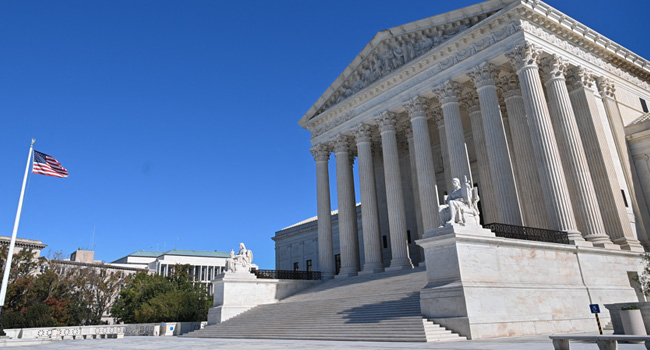
The US Supreme Court has rejected efforts to limit access to the abortion pill mifepristone, widely used for terminating pregnancies. In a unanimous decision on Thursday, June 13, 2024, the court ruled that the anti-abortion groups and physicians challenging the medication lacked the legal standing to bring their case.
Justice Brett Kavanaugh, who authored the 9-0 opinion, stated, “We recognize that many citizens, including the plaintiff doctors here, have sincere concerns about and objections to others using mifepristone and obtaining abortions. But citizens and doctors do not have standing to sue simply because others are allowed to engage in certain activities.”
The Biden administration, advocating for the maintenance of access to mifepristone, had urged the court to uphold the drug’s availability. Approved by the Food and Drug Administration (FDA) in 2000, mifepristone is central to abortion rights, a contentious issue in the upcoming November election. President Joe Biden’s administration supports the drug’s use, while his opponent Donald Trump and the Republican Party favor restrictions on abortion.
Kavanaugh emphasized that “the federal courts were the wrong forum for addressing the plaintiffs’ concerns about FDA’s actions,” suggesting that objections could be addressed through regulatory procedures or political processes.
Anti-abortion groups had sought to restrict the pill nationwide, claiming it was unsafe and arguing that anti-abortion doctors were forced to violate their conscience by treating patients with complications from its use. A Texas district court judge, appointed by Trump, had previously ruled to ban mifepristone, but this decision was later overturned by an appeals court due to the expiration of the statute of limitations on challenging the FDA’s approval. The appeals court, however, had restricted mifepristone’s use to seven weeks of pregnancy, blocked its mail delivery, and required it to be administered by a doctor.
The Supreme Court’s decision lifts these restrictions, with Kavanaugh concluding that “plaintiffs lack standing to challenge FDA’s actions.”
Medication abortion, primarily involving mifepristone, accounted for 63% of all abortions in the US last year, according to the Guttmacher Institute. Since the Supreme Court’s 2022 decision overturning Roe v. Wade, which had provided a constitutional right to abortion for nearly 50 years, about 20 states have imposed bans or severe restrictions on abortion.
Public opinion polls reveal that a majority of Americans support continued access to safe abortion services, despite ongoing conservative efforts to limit or ban the procedure outright.








